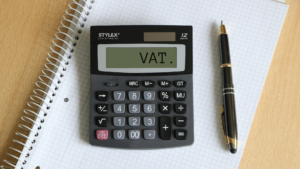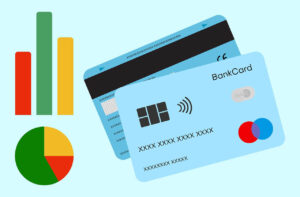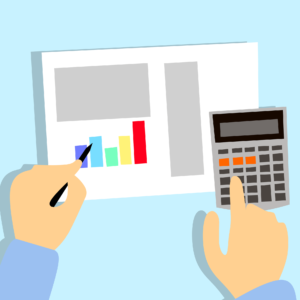9 Things You Must Know When Starting A Business As A Sole Trader

Starting a business as a sole trader is a bit like embarking on a new adventure – it’s exciting, a tad nerve-wracking, but ultimately, it’s your ticket to making your mark in the business world. We’ve created this guide to help break down 9 key points when starting a business as a sole trader.
We’re a professional practice based in Oxford, UK, offering bookkeeping and accounting solutions that are tailored to meet the needs of UK business owners.
Joanna Bookkeeping can help with everything from setting up your accounting system to day-to-day bookkeeping and reporting. We’ll even manage those all-important self-assessment responsibilities that come with being a sole trader, saving you time so you can focus on growing your business.
Get in touch with our Oxford accountant to find out how we can support you.
Not based in Oxford? No problem! We’re fully digital and support businesses from all over the UK.
These nine crucial points aren’t just tips; they’re the building blocks of a strong foundation for your journey as a sole trader. Whether you’re a seasoned entrepreneur or just starting to explore the possibilities, this guide will help you get to grips with becoming a sole trader.
You Are Responsible for Submitting Your Tax Returns to HMRC
When you start a business as a sole trader, you will have to become responsible for your self-assessment tax returns. In self-assessment, you’ll go through your income, expenses, and all financial transactions. It’s like putting together the pieces of a financial puzzle. This process ensures you have a clear understanding of your business’s financial standing.
While it might seem a bit daunting, think of it as a valuable tool. It’s not just about meeting tax obligations; it’s about having a solid grasp of your business’s financial health. This knowledge empowers you to make informed decisions and steer your business in the right direction.
You Will Get Fined if You Don't Do Your Taxes on Time
Timeliness is key, and failing to meet tax deadlines can lead to self-assessment penalties. Stay vigilant and keep those dates marked on your calendar. It’s not just good practice; it’s a legal necessity when you run a business as a sole trader.
You Can Start A Business As A Sole Trader Straight Away Without Being Registered with HMRC First
The beauty of being a sole trader is the swiftness with which you can dive into business. However, it’s imperative to remember that HMRC registration, specifically for self-assessment, should be on your agenda by October of your second year in business. This ensures you’re compliant and up to date. Check out our helpful blog about when to register for self-assessment for even more info.
Professional accounting support
Need someone to help you navigate self-employment?
We offer a range of accounting services and support sole traders at various stages of running their businesses.
You Are Responsible for Your Business Debts
Starting a business as a sole trader comes with many advantages, but self-employment also has areas that aren’t that exciting. And you need to be fully aware of them. In the world of sole trading, you and your business are intertwined. This means that any debts incurred by your business are essentially your own. It’s a weighty responsibility, one that calls for precise financial management.
You Can Employ People
Being a sole trader doesn’t mean you have to be a one-person show. You can extend your team by joining the Pay As You Earn (PAYE) scheme and taking on employees. It’s a strategic move that can really boost your business potential.
You Must Keep Financial Records
Sound financial records are the lifeblood of any successful business, and as a sole trader, it’s doubly crucial. As soon as you start a business as a sole trader your legal responsibility for record-keeping will start. Meticulous record-keeping ensures you have a clear overview of your financial health and paves the way for informed decisions.
Preparing Your Tax Returns May Not Always Be Straightforward
Tax returns can be a maze, especially when you have multiple income streams to consider. Seeking advice from a qualified accountant can be a game-changer. Their expertise can streamline the process and ensure accuracy.
It's Free to Start a Business As a Sole Trader
Unlike some ventures, becoming a sole trader comes without registration fees. However, remember that startup costs may vary depending on the nature of your business, but it’s a relatively low financial barrier to entry.
Not All Costs Are Allowable for Tax Purposes
While business expenses are a part and parcel of operations, not every cost is tax-deductible. It’s essential to discern what qualifies and what doesn’t. Collaborating with an accountant can help you navigate this terrain effectively.
We have another blog dedicated to the expenses you can include in your self assessment tax return, which dives even deeper into this important topic.
As you embark on this exciting venture as a sole trader, remember, every successful business started somewhere. Embrace the learning curves, relish the milestones, and never hesitate to seek advice.
Joanna Bookkeeping is dedicated to helping people navigate and understand what it means to be a sole trader. Book a call with our Oxford-based accountant for comprehensive support, tailored insights, and strategies built on experience.
Frequently Asked Questions
Registering for self-assessment with HMRC when you want to become a sole trader is free. Your initial costs will be limited to any set-up costs your business requires. This can be different from industry to industry. Some sole traders will need to purchase a computer to be able to start working. But others may have to purchase initial stock, software etc.
If you want to start a business as a sole trader, you can do this straight away without notifying HMRC before you start. You are, however, required to register for self-assessment by 5th October in your second year of trading. Not registering by the deadline may result in penalties.
The best way to tell HMRC that you’re a sole trader and want to register for self-assessment is to fill out an online form. Alternatively, you can fill out a paper form and post it to HMRC.
No. Sole traders aren’t issued with company registration numbers. When you register as a sole trader, you will receive a UTR number (Unique Taxpayer Reference) which will identify you as a taxpayer for tax purposes.
Your tax situation is confidential and HMRC will not disclose to your employer that you are trading as a sole trader. They can, however, find out if you tell them directly, tell someone else and they’ll pass that information onto your employee or from you advertising your business.
You are required to register for self-assessment by 5th October in your second year of trading. Not notifying HMRC by this deadline that you are a sole trader and running your own business can result in penalties form HMRC including those for late filings of your tax returns.

Your Accountant in Oxford
Oxford Office
Joanna Bookkeeping
The Wheelhouse Angel Court
First Floor, Angel Court
81 St Clements St
Oxford
OX4 1AW
Connect
joanna@joannabookkeeping.co.uk
01865 591952





